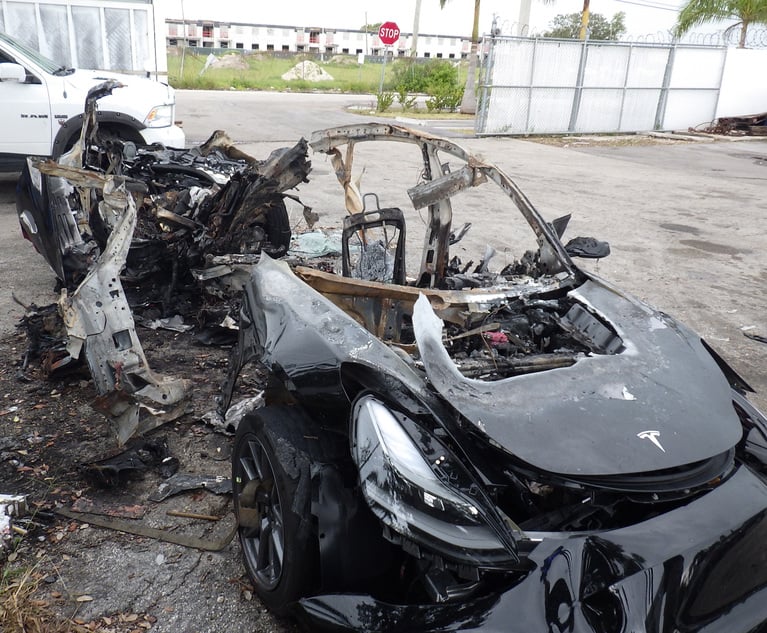WASHINGTON–Former American International Group chairman and CEOMaurice “Hank” Greenberg said yesterday the company's renegotiatedgovernment bailout should help AIG efforts to sell off assets.
|Mr. Greenberg made his comments in an appearance via videobefore the annual conference of the Captive Insurance Council ofthe District of Columbia.
|Under its prior loan arrangement, AIG would have had to repaythe government by selling assets within two years, and would havehad to pay 14.5 interest on the loan annually.
|That agreement was replaced yesterday by a deal under which theTreasury is purchasing $40 billion of AIG preferred shares underthe Troubled Asset Relief Program.
|Amongst other provisions, the Federal Reserve will reduce itscredit facility to $60 billion from $85 billion, reducing the costburden on AIG.
|The loan interest rates have also been reduced by 5.5 percent,and the length is being extended to five years from two. Thegovernment retains a 79.9 percent interest in the company.
|Mr. Greenberg said the new loan arrangements were much better,because the prior deal was made under “terms that were stranglingthe company.”
|Mr. Greenberg, currently chairman and CEO of C.V. Starr, hadbeen lobbying AIG's senior management for weeks to renegotiate theterms of the government's original $85 billion bailout loan tocharge less onerous interest rates and extend the term to allow fora more orderly sale of assets.
|He previously controlled approximately 11 percent of the AIGconglomerate's stock through a personal stake, several foundations,C.V. Starr and other companies that he controls, but in a Septemberfiling with the Securities and Exchange Commission he said he wouldbe selling shares “for liquidity and other purposes” and the salescould materially decrease his stock ownership.
|He said yesterday it was “very clear that the first [AIG loan]program was going to fail” because the interest rate was too high,totaling about $27 billion for the two years of the loan, a level“no firm was going to be able to withstand.”
|One of the problems AIG is now facing “is that AIG is in aposition where they're expected to sell assets to repay thetaxpayers, but they can't sell anything in this market,” said Mr.Greenberg.
|He explained that “you can't sell subsidiaries in this marketbecause cash is very scarce,” and because anything that could besold would go at “garage sale prices.”
|But, he said, the federal program, as reconstructed, “should buyAIG some time.”
|Going forward, he said, “sometime after about three years,” AIGshould be able to get a fair value for subsidiaries.
|However, he noted that as majority owner the Fed controls thingsand “the Federal Reserve will decide what to sell.”
|In other remarks, he continued to deny any role in AIG'sfinancial meltdown and said that “AIG had a liquidity problem, nota solvency problem.”
|Mr. Greenberg said the distressed conglomerate's problems beganafter he was forced out of the firm in 2005 and the company “wentwild.”
|After being downgraded by rating services, Mr. Greenberg saidAIG “just ran out of cash” for collateral on its credit defaultswaps whose declining value forced the government to bail out thecompany Sept. 17 with an $85 billion bridge loan followed byfurther credit arrangements.
|He spoke from his home in New York via videoconference because,he said he wanted to be sure he was around for AIG's third-quarterreport that yesterday listed more than $24 billion in losses sinceit was bailed out by the government.
|The company reported its financials yesterday just hours afterthe Federal Reserve Board and the Treasury Department agreed to thechanges that eased the terms of the AIG bailout.
|“Things are changing very rapidly,” he said. “I thought I'dbetter stay.”
|Mr. Greenberg left AIG in 2005 amidst a probe by then New YorkAttorney General Eliot Spitzer into accounting fraud andbid-rigging, and was replaced by Martin Sullivan.
|Mr. Sullivan was replaced by Robert Willumstad, followed byEdward Liddy, who was appointed CEO after the government as acondition of the $85 billion loan obtained a 79.9 percent interestthe company.
|Mr. Greenberg said, “They essentially nationalized thecompany.”
|In his view, he said aside from the company's difficultiescaused by credit default swaps, AIG had some problems with itssecurities lending outfit, which was given cash collateral inexchange for lending out securities. AIG, he said, invested thatcash collateral and lost it, leading to more of a cash crunch whenthe borrowers returned the securities and asked for their cashcollateral back.
|The company, Mr. Greenberg said, acted “greedy and foolish andin an unnecessary fashion, and whatever else you want to call it.”He added, “They kept running out of cash.”
|He said the property-casualty market has suffered somewhat as“pricing has not stiffened in property and casualty” and that hehad heard rumors that AIG was cutting rates to maintain marketshare. “That's the wrong thing to do, but sometimes desperatepeople do desperate things,” he said.
|Mr. Greenberg said his concerns about AIG were not abouthim.
|“My concern is and always has been about the thousands ofemployees who've lost their life savings,” he said. “When I leftthe company, they had a market value of $170 billion,” which hesaid is now down to about $5 billion.
|The New York state employees' pension system alone, Mr.Greenberg said, had lost $1.2 billion or $1.3 billion with thedecline in AIG stock values.
|He said he would “try to do anything I can to help in any way Ican, but there's a limit to what I can do here.”
|He put a lot of blame on the various directors at AIG, who hesaid “were not minding the store.”
|“What were they doing all this time?” he asked. He said he hadformed an audit committee, and others as well, “more committeesthan I can count.”
|“What was management doing? I'm angry, obviously I'm angry.”
|Mr. Greenberg also criticized former New York Attorney Generaland Governor Spitzer, although not by name.
|Some AIG problems, he said, werecaused “by an aggressiveattorney general who was seeking to become governor and who triedto take down the biggest names he could find.”
|Mr. Greenberg added, “A lot needs to be looked at in our justicesystem, or 'injustice system.'”
|He also talked a bit about captive insurers, the subject of theconference, and said they are having problems with companies notwanting to front them anymore.
|“This is not going to go away overnight,” Mr. Greenberg said.“We're not going to work our way out of this in 20 minutes; it'sgoing to be very painful.
Want to continue reading?
Become a Free PropertyCasualty360 Digital Reader
Your access to unlimited PropertyCasualty360 content isn’t changing.
Once you are an ALM digital member, you’ll receive:
- All PropertyCasualty360.com news coverage, best practices, and in-depth analysis.
- Educational webcasts, resources from industry leaders, and informative newsletters.
- Other award-winning websites including BenefitsPRO.com and ThinkAdvisor.com.
Already have an account? Sign In
© 2024 ALM Global, LLC, All Rights Reserved. Request academic re-use from www.copyright.com. All other uses, submit a request to [email protected]. For more information visit Asset & Logo Licensing.








